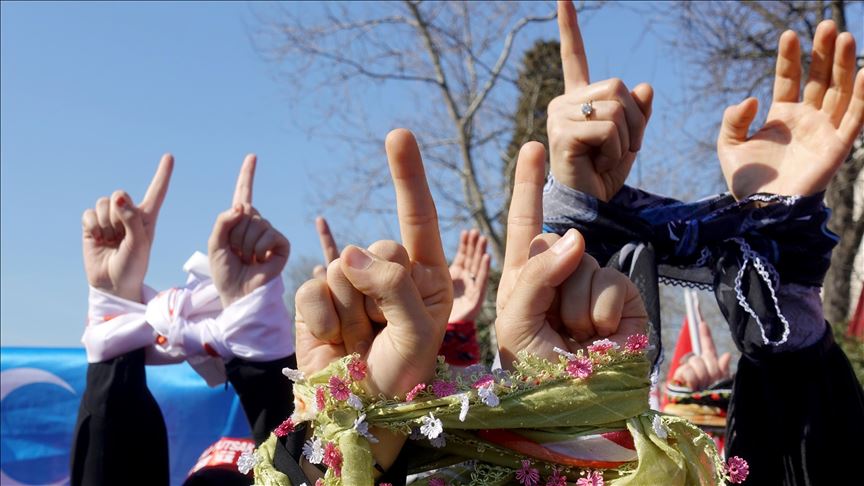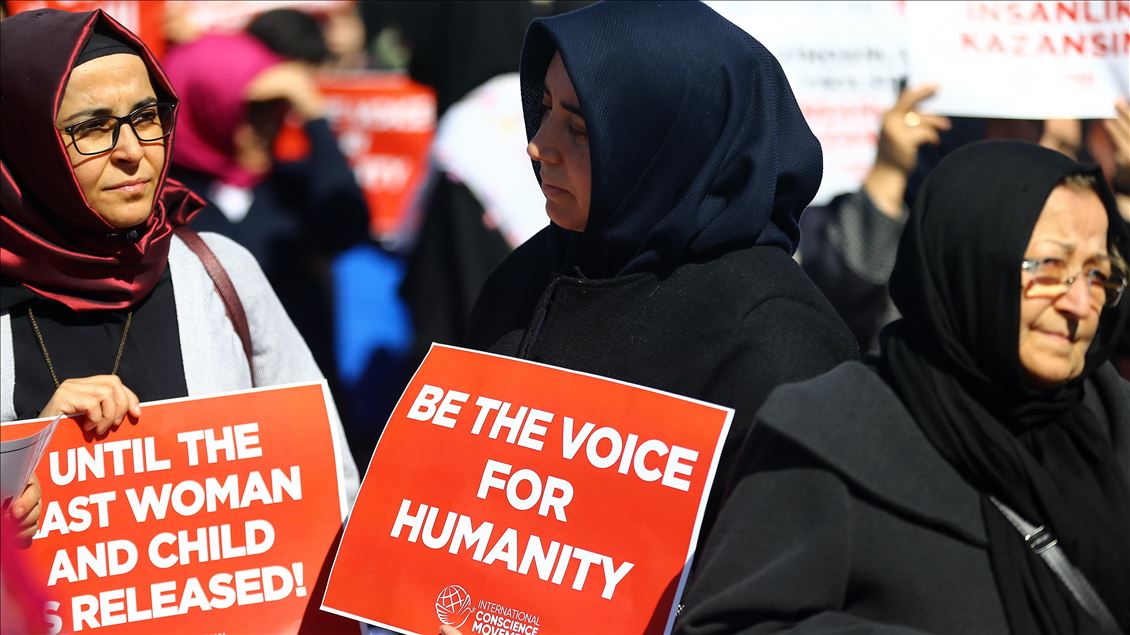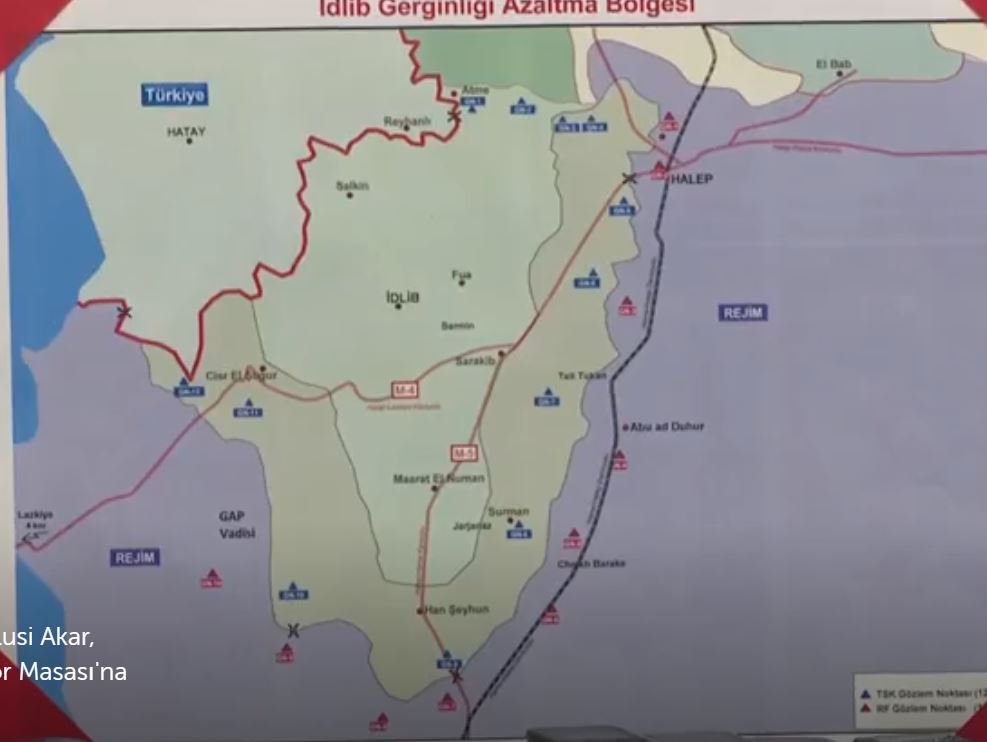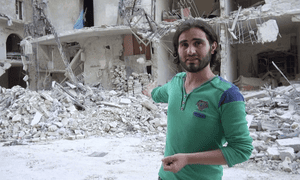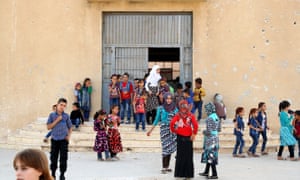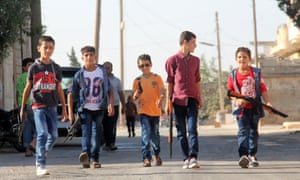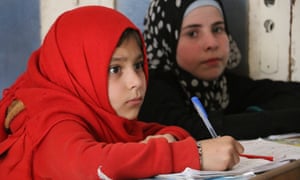
'Omar Alshakal is 24 years old, but when he speaks it seems like he's a hundred.
"When I was in Germany I sometimes stopped looking at the boys with backpacks in front of the high school," he said. "Or those who crowded at the entrance to the university. I looked them and I suffered. Not just because they could study and I could not, but because they were my age and lived like 20-year-olds. And I lost my light heartedness, forever, eight years ago, when the Syrian war began."
He carries the burden of war on his shoulders; a wounded body and an indelible memory, the loss of loved ones, the failure of revolutionary expectations, the escape.
He speaks while drinking a hot coffee on the island of Samos, after a morning spent distributing winter clothes to the thousands of migrants in the main facility here, as well as those living in informal arrangements in a field and forest that surrounds the facility.
Thousands of women and children are here. Even when the temperature drops below zero, many walk in the mud without shoes; the lucky ones have slippers.
Omar has a tired face, worn out from smiling to all the children in the camp. His smiles mask his despair.
"Eight years ago I lost my life," he said. "After being a year in Germany I realised that I had to help others. In Germany I was not doing anything that was not for me, but for the ones in need. I felt useless. So I returned to Greece and founded Refugee for Refugees. I feel more useful; people here have nothing. The hardest thing to explain when talking about migrants is that these people - like me - were not born like that. They were not born poor and dirty. The war and the escape made them poor and dirty. I, like them, up until eight years ago had a house, some friends, a school. Then suddenly we did not have anything any more. That's what brought us here, asking for help, asylum."
Omar was born and raised in Deir ez-Zour; he left Syria for Lebanon in 2010 to work as a lifeguard. When the uprising began, he returned home and was arrested by Assad's army in the early days of the protests. When he recalls that time, he remembers prisoners beaten to death.
After the prisons of Assad, he says, you no longer distinguish between life and death.
He became a volunteer, driving ambulances for the rebels. As an activist, he believed in the revolution, he wanted a new, free Syria.
In 2013, his ambulance was hit by a bomb. The paramedics and the six wounded in his vehicle were all killed. Omar escaped with his life, his leg seriously injured.
After using a wheelchair for a few months, Omar travelled to Turkey, where a doctor recommended he venture onwards to Europe for treatment.
To 20-year-old Omar, "Europe" was the Greek coast. Thousands of people were attempting the same journey, so one day Omar and two of his friends tried their luck - but not in rubber boats, like the others. Omar and his friends started swimming. It was a 14-hour swim from Turkey to Kalymnos.
"I realised I was still the good swimmer I was when I was a lifeguard in Lebanon. And then I was not afraid to die. A piece of me had already died forever."
Once he arrived in Greece he realised his onward path would be hard: he was repeatedly turned back at the Macedonian border, he slept on the street in Athens, with other Syrians like him. Then, finally, he found transport to Germany, and waited eight months for his documents to be ready. It was now May 2015.
Omar lived in Rostock for a while. The government had provided him with a place to live and he volunteered at a local NGO that cooked food for the refugees.
One night he woke up to the sound of the police breaking down his door. He was arrested and held at the local police station. They suspected he was linked with the Islamic State group.
It was a farcical situation. The very man who had risked everything to escape from Deir ez-Zour, who carried both the physical and invisible scars of a fierce war, was arrested on suspicion of being an IS supporter.
"I felt like going crazy," he says.
After a few weeks he received a letter of apology: we were wrong, we received false indications. Two months later, Omar left Germany. He wanted to help his people.
At the beginning of 2016, he returned to Greece, at the peak of the migration crisis. The EU and Turkey were about to sign the pact that created holding facilities on the Greek islands, turning them into de facto prisons. Thousands of people would be held in humiliating conditions awaiting the assessment of their asylum application.
Omar started to help those in need, to help those who crossed the sea. He volunteered for several organisations. Then he decided to build his own.
He began to collect clothes, toys and shoes and help migrants, first on the island of Lesbos and now also on Samos, where he is building a warehouse for shoes and basic necessities with other volunteers.
"This cold [weather] is an emergency, we do our best to give everyone clothes for the winter," he said.
"There are thousands of people in tents, for them living outside or inside is the same. The situation is terrible, they have no electricity, water, toilets, showers. Their conditions are not safe, at night it is very dangerous for women especially, when they need to go out to urinate they are not safe at all. And for children it's the same, there are hundreds of children with summer clothes and there's a lot of wind. The night is terrible."
Omar is affectionate with all the children who line up in the early morning. He wears a hat shaped like a bear, tells jokes, teaches the youngsters a few words of English - but at the same time remains strict: one piece each, everyone has the right to be clothed.
"No one can understand how living in a tent is," he said. "It is a loss of dignity to live in a place where you feel you are worth less than nothing. I believe that Europe cares more for animals than for these people. And I strongly believe that children and families will never forget the time spent here. Before the war, we had normal lives, schools, houses, friends. And then we lost everything. We had only a dream, to be welcomed and helped. But once here people don't even receive a tent."
Omar helps a woman who has just escaped from Syria with her two sons. She arrived on the island with $150. She found no space in the official detention facility, and bought a tent with the little savings she had. For two days she did not eat, she told Omar. "When you have a house, you do not imagine how your life could be in a tent, in the middle of winter," he said.
"I am pretty sure that the Greek government has prepared an emergency plan for the cold, for their streets, for their schools. But they did not think about the emergency for migrants living in the cold. I say this because last year we had the snow in Lesbos and someone died because of the snow, guys died, freezing. And despite that, this year there are no winter plans. Winter is not an emergency, it is not difficult to predict. It depends only on the calendar."
Omar does not know what his future holds, but every day he wakes up to help those in need.
"If you let people live like this for months or years, you can not talk about humanity," he said. "I do not think this Europe is human." '

